Cal Newport
description: American computer scientist, academic lecturer and writer
33 results
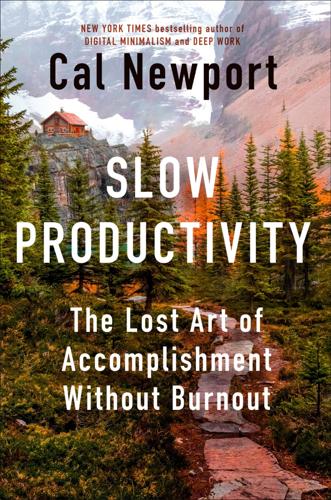
Slow Productivity: The Lost Art of Accomplishment Without Burnout
by
Cal Newport
Published 5 Mar 2024
Employees Say They Love It,” Business Insider, March 28, 2023, businessinsider.com/lowes-workers-say-love-4-day-work-week-with-exceptions-2023-3. GO TO NOTE REFERENCE IN TEXT Consider Isaac Newton working: Cal Newport, “Newton’s Productive School Break,” Cal Newport (blog), March 23, 2023, calnewport.com/blog/2020/03/23/newtons-productive-school-break; and Cal Newport, “The Stone Carver in an Age of Computer Screens,” Cal Newport (blog), October 27, 2020, calnewport.com/blog/2020/10/27/the-stone-carver-in-an-age-of-computer-screens. GO TO NOTE REFERENCE IN TEXT As I’ll elaborate later: Cal Newport, “What If Remote Work Didn’t Mean Working from Home?,” New Yorker, May 21, 2021, newyorker.com/culture/cultural-comment/remote-work-not-from-home.
…
GO TO NOTE REFERENCE IN TEXT “To do real good physics”: Here is an article from 2014 I wrote about the clip, including the identification of the excerpt cited here (the YouTube clip of the 1981 video has been taken down for copyright violation reasons): Cal Newport, “Richard Feynman Didn’t Win a Nobel by Responding Promptly to E-mails,” Cal Newport (blog), April 20, 2014, calnewport.com/blog/2014/04/20/richard-feynman-didnt-win-a-nobel-by-responding-promptly-to-e-mails. The second half of this quote can also be found in Feynman’s Los Angeles Times obituary: Lee Dye, “Nobel Physicist R. P. Feynman of Caltech Dies,” Los Angeles Times, February 16, 1988, latimes.com/archives/la-xpm-1988-02-16-mn-42968-story.html.
…
GO TO NOTE REFERENCE IN TEXT In it, I recommended: For more on time blocking, see the explanatory video here: timeblockplanner.com. GO TO NOTE REFERENCE IN TEXT It opened on the story: Cal Newport, “The Rise and Fall of Getting Things Done,” New Yorker, November 17, 2020, newyorker.com/tech/annals-of-technology/the-rise-and-fall-of-getting-things-done. GO TO NOTE REFERENCE IN TEXT docket-clearing meetings: The careful reader might notice the homage in this name to the delightful Judge John Hodgman podcast. GO TO NOTE REFERENCE IN TEXT “Imagine everyone on your team”: Cal Newport, “It’s Time to Embrace Slow Productivity,” New Yorker, January 3, 2022, newyorker.com/culture/office-space/its-time-to-embrace-slow-productivity.
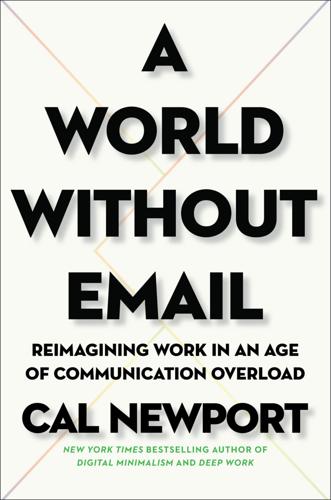
A World Without Email: Reimagining Work in an Age of Communication Overload
by
Cal Newport
Published 2 Mar 2021
This study was also cited and summarized by Edward Tenner in Why Things Bite Back (cited in the preceding two notes), which is how I first came across it. 4. Cal Newport, “Is Email Making Professors Stupid?,” Chronicle of Higher Education, February 12, 2019, www.chronicle.com/interactives/is-email-making-professors-stupid. 5. Greg McKeown, Essentialism: The Disciplined Pursuit of Less (New York: Crown Business, 2014), 1–3. 6. Readers of my book Deep Work might identify this phenomenon as what I called the whiteboard effect. Generally speaking, using a common screen or board to work collaboratively with a small group on a hard problem will intensify the depth of concentration you achieve compared with working alone. Cal Newport, Deep Work: Rules for Focused Success in a Distracted World (New York: Grand Central Publishing, 2016). 7.
…
Also by Cal Newport The Time-Block Planner Digital Minimalism Deep Work So Good They Can’t Ignore You How to Be a High School Superstar How to Become a Straight-A Student How to Win at College Portfolio / Penguin An imprint of Penguin Random House LLC penguinrandomhouse.com Copyright © 2021 by Calvin C. Newport Penguin supports copyright. Copyright fuels creativity, encourages diverse voices, promotes free speech, and creates a vibrant culture. Thank you for buying an authorized edition of this book and for complying with copyright laws by not reproducing, scanning, or distributing any part of it in any form without permission.
…
Repenning, “Breaking Logjams in Knowledge Work: How Organizations Can Improve Task Flow and Prevent Overload,” MIT Sloan Management Review, September 6, 2018, https://sloanreview.mit.edu/article/breaking-logjams-in-knowledge-work/. Chapter 3: Email Has a Mind of Its Own 1. The story of the CIA’s pneumatic tubes and the general push for practical asynchrony is adapted from my 2019 New Yorker article on the history of email: Cal Newport, “Was E-mail a Mistake?,” Annals of Technology, New Yorker, August 6, 2019, www.newyorker.com/tech/annals-of-technology/was-e-mail-a-mistake. 2. According to the CIA historians I consulted during my research, office networking technology was a big part of the reason the tube system was not expanded during the headquarters renovation.
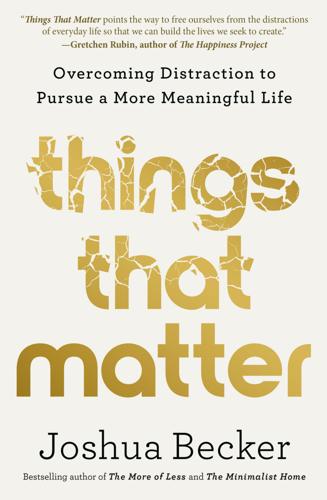
Things That Matter: Overcoming Distraction to Pursue a More Meaningful Life
by
Joshua Becker
Published 19 Apr 2022
See also Gloria Mark, Daniela Gudith, and Ulrich Klocke, “The Cost of Interrupted Work: More Speed and Stress,” CHI ’08: Proceedings of the SIGCHI Conference on Human Factors in Computing Systems (April 6, 2008): 107–10, https://doi.org/10.1145/1357054.1357072. BACK TO NOTE REFERENCE 8 Nicholas Carr, The Shallows: What the Internet Is Doing to Our Brains, updated ed. (New York: Norton, 2020), 10. BACK TO NOTE REFERENCE 9 Cal Newport, Deep Work: Rules for Focused Success in a Distracted World (New York: Grand Central, 2016). BACK TO NOTE REFERENCE 10 Cal Newport, quoted in Eric Barker, “Stay Focused: 5 Ways to Increase Your Attention Span,” Time, June 26, 2014, https://time.com/2921341/stay-focused-5-ways-to-increase-your-attention-span. BACK TO NOTE REFERENCE 11 Newport, Digital Minimalism, 6–7.
…
Equally important, tech distractions keep us from realizing the life we truly desire to live…and yet these distractions go virtually unnoticed. We never expected technology to become so pervasive in our lives. And while we appreciate the benefits, we rightly wonder what these advantages are costing us. Computer scientist Cal Newport wrote, These technologies as a whole have managed to expand beyond the minor roles for which we initially adopted them. Increasingly, they dictate how we behave and how we feel, and somehow coerce us to use them more than we think is healthy, often at the expense of other activities we find more valuable.
…
Nicholas Carr, author of The Shallows: What the Internet Is Doing to Our Brains, said, What we’re trading away for the riches of the Net—and only a curmudgeon would refuse to see the riches—is what [media blogger Scott] Karp calls “our old linear thought process.” Calm, focused, undistracted, the linear mind is being pushed aside by a new kind of mind that wants and needs to take in and dole out information in short, disjointed, often overlapping bursts—the faster, the better.[9] Cal Newport echoed this by saying that however valuable our digital connectedness may be, we can’t lose the ability to do what he calls “deep work”—the ability to focus without distraction on a cognitively demanding task.[10] As we saw in the preceding chapter, work is closely related to our purpose and goals in life, and even if our paycheck gig isn’t our dream job, it deserves our best work because it’s a way we love and serve others.
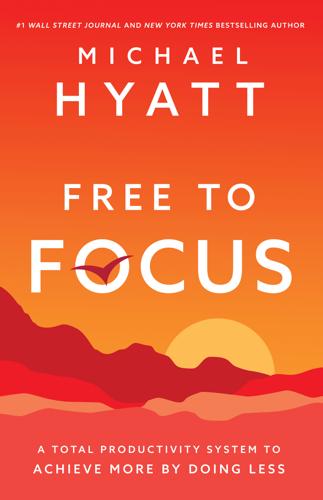
Free to Focus: A Total Productivity System to Achieve More by Doing Less
by
Michael Hyatt
Published 8 Apr 2019
Free to Focus offers a practical, flexible framework for centering your life around what matters most, and unleashing your best work every day. Michael Hyatt has helped thousands of people take back control of their lives, and he’ll do the same for you. Todd Henry, author, The Accidental Creative “Busyness is meaningless. What matters is consistently executing the work that actually matters. This book shows you how.” Cal Newport, New York Times bestselling author, Deep Work and Digital Minimalism “Success, we are often told, requires backbreaking work and never-ending hours in the office. And then we meet the truly successful who seem to get more done in less time than anyone else. Michael Hyatt shines the light on the secrets of the most productive people in his new book, Free to Focus.
…
Then we pride ourselves about our ability to multitask. The problem is, the human brain doesn’t really multitask. Instead, as journalist John Naish says, “it switches frantically between tasks like a bad amateur plate-spinner.”1 This kind of switching comes with heavy costs. When you jump between tasks, according to Georgetown computer scientist Cal Newport, “your attention doesn’t immediately follow—a residue of your attention remains stuck thinking about the original task.”2 Switching isn’t seamless. “Attention residue” gunks up our mental gears. One study by the University of California at Irvine found workers averaged twenty-five minutes to resume a task after an interruption like an email or phone call.3 By breaking our focus, switching also slows our processing ability.
…
I’ve heard people say that social media provides breaks in the day, the way people used to walk or go outdoors for a smoke. That’s part of what’s happening, but the accessibility of social media means people aren’t usually working for a long period and then taking a break. They’re breaking their concentration multiple times in what Cal Newport calls “quick checks” during the working period. Instead of taking a break, they’re breaking their focus. Doing Downhill Work. A lot of this has to do with low frustration tolerance. In their book The Distracted Mind, professors Adam Gazzaley and Larry Rosen say humans are inherently attention-seeking.
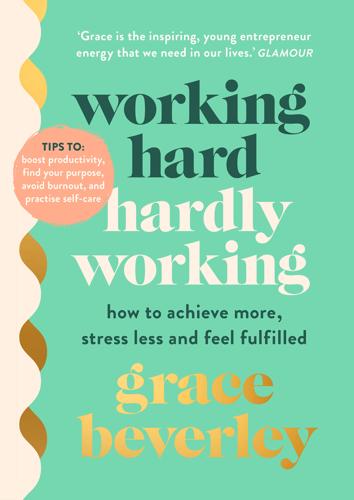
Working Hard, Hardly Working
by
Grace Beverley
Books Business, Self-Development and Big Ideas Atomic Habits: An Easy & Proven Way to Build Good Habits & Break Bad Ones, James Clear (2018) Big Friendship: How We Keep Each Other Close, Ann Friedman and Aminatou Sow (2020) Black Box Thinking: Marginal Gains and the Secrets of High Performance, Matthew Syed (2015) Can’t Even: How Millennials Became the Burnout Generation, Anne Helen Petersen (2021) Deep Work: Rules for Focused Success in a Distracted World, Cal Newport (2016) Difficult Women: A History of Feminism in 11 Fights, Helen Lewis (2020) Digital Minimalism: Choosing a Focused Life in a Noisy World, Cal Newport (2019) Find Your Why: A Practical Guide for Discovering Purpose for You and Your Team, Simon Sinek with David Mead and Peter Docker (2017) Flow: The Psychology of Optimal Experience, Mihaly Csikszentmihalyi (1990) Freakonomics: A Rogue Economist Explores the Hidden Side of Everything, Steven D.
…
Let’s get this straight: productivity ≠ ticking off your traditional to-do list. You have to have the right to-do list, filled with deep work, comprehensive tasks directed towards larger goals, and a number of quick boxes to tick. Deep work3 As defined by computer scientist and professor Cal Newport, deep work is any ‘professional activity performed in a state of distraction-free concentration that pushes your cognitive capabilities to their limit. These efforts create new value, improve your skill, and are hard to replicate.’ We’re about to get into some real juicy productivity tips – but first we need to get comfortable with tough love.
…
I truly believe that as long as you know what works for you and you’re honest about where to apply it, you’re on the path to productive and mindful success. Deep work To take your time-blocking to the next level, I want to introduce deep work back into the conversation. We touched on it very briefly earlier, but as any Cal Newport diehard will know, a little is not enough. Deep work is all about accepting that we will be bombarded from all sides by notifications and instant distractions,5 and that it’s our job to combat that and protect our space when we need to. In other words, it’s all about changing the way you work, setting deep work slots (aligned with time-blocks) and concentrating fully on your work during those times.
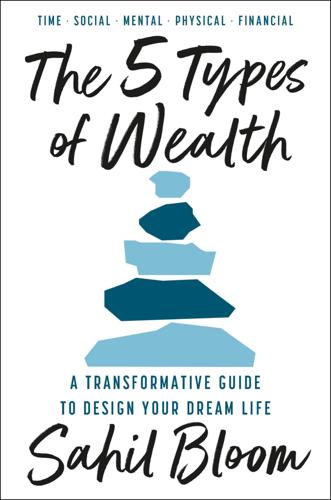
The 5 Types of Wealth: A Transformative Guide to Design Your Dream Life
by
Sahil Bloom
Published 4 Feb 2025
BACK TO NOTE REFERENCE 4 Sophie Leroy, “Why Is It So Hard to Do My Work? The Challenge of Attention Residue When Switching Between Work Tasks,” Organizational Behavior and the Human Decision Processes 109, no. 2 (July 2009): 168–81. BACK TO NOTE REFERENCE 5 Cal Newport, “A Productivity Lesson from a Classic Arcade Game,” Cal Newport (blog), September 6, 2016, https://calnewport.com/a-productivity-lesson-from-a-classic-arcade-game/. BACK TO NOTE REFERENCE 6 “Three-Quarters of Parents Too Busy to Read Bedtime Stories,” Telegraph, February 27, 2009, https://www.telegraph.co.uk/women/mother-tongue/4839894/Three-quarters-of-parents-too-busy-to-read-bedtime-stories.html.
…
The research indicates that it doesn’t seem to matter whether the task switch is macro (that is, moving from one major task to the next) or micro (that is, pausing one major task for a quick check on some minor task). Stopping to check your email or messages is just as bad as jumping from one major project to another. Bestselling author Cal Newport puts it well when he talks about the cultural propensity to “just check” on phone or email notifications: “If, like most, you rarely go more than 10–15 minutes without a just check, you have effectively put yourself in a persistent state of self-imposed cognitive handicap. The flip side, of course, is to imagine the relative cognitive enhancement that would follow by minimizing this effect.”[6] The consequences of the modern struggle—of perpetual busyness, digital alerts, and scattered attention—are dire.
…
Find new ways to raise the stakes and get moving. It’s not perfect, but this system will help you burst through the walls of procrastination. The pages you’re currently reading are a case in point! How to Concentrate Attention: The Flow State Boot-Up Sequence Pillar: Attention In his bestselling book Deep Work, Cal Newport pushes the importance of focused, uninterrupted, undistracted work on the most important priorities as the only way to grow and thrive in the modern economy. In Newport’s words, “The Deep Work Hypothesis: The ability to perform deep work is becoming increasingly rare at exactly the same time it is becoming increasingly valuable in our economy.
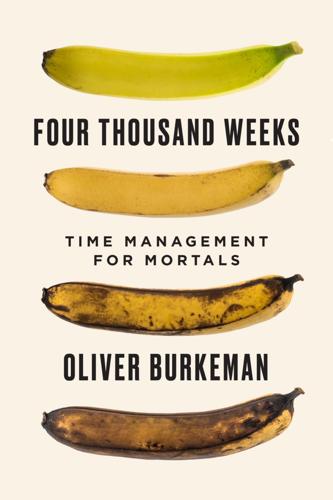
Four Thousand Weeks: Time Management for Mortals
by
Oliver Burkeman
Published 9 Aug 2021
“Spring is here, even in London N1”: George Orwell, “Some Thoughts on the Common Toad,” first published in Tribune, April 12, 1946, available at www.orwellfoundation.com/the-orwell-foundation/orwell/essays-and-other-works/some-thoughts-on-the-common-toad/. Appendix: Ten Tools for Embracing Your Finitude “You could fill any arbitrary number of hours with what feels to be productive work”: Cal Newport, “Fixed-Schedule Productivity: How I Accomplish a Large Amount of Work in a Small Number of Work Hours,” available at www.calnewport.com/blog/2008/02/15/fixed-schedule-productivity-how-i-accomplish-a-large-amount-of-work-in-a-small-number-of-work-hours/, with further discussion in Cal Newport, Deep Work (New York: Grand Central, 2016). “When you can’t do it all, you feel ashamed and give up”: Jon Acuff, Finish: Give Yourself the Gift of Done (New York: Portfolio, 2017), 36.
…
To whatever extent your job situation permits, decide in advance how much time you’ll dedicate to work—you might resolve to start by 8:30 a.m., and finish no later than 5:30 p.m., say—then make all other time-related decisions in light of those predetermined limits. “You could fill any arbitrary number of hours with what feels to be productive work,” writes Cal Newport, who explores this approach in his book Deep Work. But if your primary goal is to do what’s required in order to be finished by 5:30, you’ll be aware of the constraints on your time, and more motivated to use it wisely. 2. Serialize, serialize, serialize. Following the same logic, focus on one big project at a time (or at most, one work project and one nonwork project) and see it to completion before moving on to what’s next.
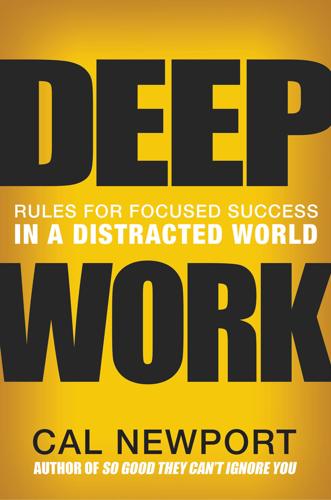
Deep Work: Rules for Focused Success in a Distracted World
by
Cal Newport
Published 5 Jan 2016
Sign Up Or visit us at hachettebookgroup.com/newsletters Contents Cover Title Page Welcome Introduction PART 1: The Idea Chapter 1: Deep Work Is Valuable Chapter 2: Deep Work Is Rare Chapter 3: Deep Work Is Meaningful PART 2: The Rules Rule #1: Work Deeply Rule #2: Embrace Boredom Rule #3: Quit Social Media Rule #4: Drain the Shallows Conclusion Also by Cal Newport Notes Newsletters Copyright Copyright Copyright © 2016 by Cal Newport Cover design by Elizabeth Turner Cover copyright © 2016 by Hachette Book Group, Inc. All rights reserved. In accordance with the U.S. Copyright Act of 1976, the scanning, uploading, and electronic sharing of any part of this book without the permission of the publisher constitute unlawful piracy and theft of the author’s intellectual property.
…
But if you’re willing to sidestep these comforts and fears, and instead struggle to deploy your mind to its fullest capacity to create things that matter, then you’ll discover, as others have before you, that depth generates a life rich with productivity and meaning. In Part 1, I quoted writer Winifred Gallagher saying, “I’ll live the focused life, because it’s the best kind there is.” I agree. So does Bill Gates. And hopefully now that you’ve finished this book, you agree too. Also by Cal Newport So Good They Can’t Ignore You How to Be a High School Superstar How to Become a Straight-A Student How to Win at College Notes Introduction “In my retiring room”; “I keep the key”; and “The feeling of repose and renewal”: Jung, Carl. Memories, Dreams, Reflections. Trans. Richard Winston.
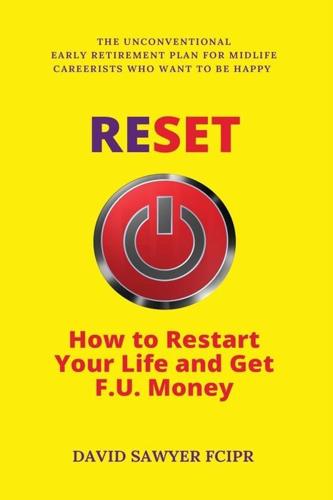
Reset: How to Restart Your Life and Get F.U. Money: The Unconventional Early Retirement Plan for Midlife Careerists Who Want to Be Happy
by
David Sawyer
Published 17 Aug 2018
According to a 2018 report by management consulting firm McKinsey[37], artificial intelligence, automation and robotics[38] will have made many unskilled jobs redundant, and there’ll be a bigger pool of knowledge workers for employers to choose from. Whether you’re a PR consultant, accountant, or lawyer it won’t matter if you’re in Glasgow, Gothenburg or Ganzhou. All that will matter, in the words of Deep Work author Cal Newport, is: “Your ability to quickly master hard things.” “The ability to produce at an elite level, in terms of both quality and speed[39].” You think your job’s in danger now. Try ten years down the line. And it ain’t going to get any better unless you do something about it now. They’re not real Before we go any farther in this book, you need to understand something.
…
Life isn’t The X Factor[449] and the world’s not full of reality TV stars. In the final reckoning, you get out what you put in and nowt beats hard graft. Apart, perhaps, from distraction-free hard graft. 5. The importance of deep work You will never reach your destination if you stop and throw stones at every dog that barks[450]. Winston Churchill Cal Newport, PhD, is assistant professor of computer science at Georgetown University. His book, Deep Work, has had a profound effect on how I approach achieving my goals. Here’s the why, what and how on this fundamental RESET principle. The problem We live in a fast-changing world, full of distractions.
…
[450] “throw stones at every dog that barks”: “13 Things You Should Give Up If You Want To Be Successful – Medium.” 26 Dec. 2016, toreset.me/450. [451] “Deep work is like a super power in our increasingly competitive twenty-first century economy”: “Deep Work: Rules for Focused Success in a Distracted... – Cal Newport.” 5 Jan. 2016, toreset.me/451. [452] David Allen’s GTD system: “Getting Things Done – Wikipedia.” toreset.me/452. [453] If you’re one of the 70%: “Quiet: The Power of Introverts in a World That Can’t Stop... – Amazon UK.” toreset.me/453, p. 76. [454] “They make people sick, hostile, unmotivated and insecure”: Ibid., p. 84
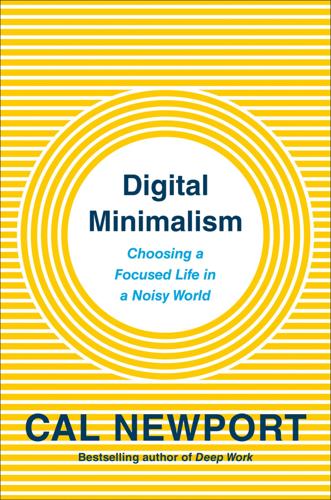
Digital Minimalism: Choosing a Focused Life in a Noisy World
by
Cal Newport
Published 5 Feb 2019
Thank you for buying an authorized edition of this book and for complying with copyright laws by not reproducing, scanning, or distributing any part of it in any form without permission. You are supporting writers and allowing Penguin to continue to publish books for every reader. Library of Congress Cataloging-in-Publication Data Names: Newport, Cal, author. Title: Digital minimalism : on living better with less technology / Cal Newport. Description: New York : Portfolio/Penguin, 2019. | Includes bibliographical references and index. Identifiers: LCCN 2018041568 (print) | LCCN 2018043187 (ebook) | ISBN 9780525536543 (Ebook) | ISBN 9780525536512 (hardcover) | ISBN 9780525542872 (international edition) Subjects: LCSH: Information technology—Social aspects. | Internet addiction—Social aspects. | Technological innovations—Social aspects.
…
Money Mustache (Pete Adeney), 171–73, 176, 194–96 music: iPod and, 4, 5, 100–101, 217 record player and, 72 Walkman and Discman and, 100 NAACP, 94 negativity, xii Netflix, 46–47, 64 neuroscience, 131–35 new-mom boot camp, 185, 189 news, 45–46, 78–79, 222, 233, 238–42 newspapers, 79, 215, 241 Newton, Isaac, 96 New York, ix New Yorker, 220 New York Post, 27, 28 New York Sun, 215 New York Times, 7n, 66 New York Times Magazine, 107 Nicholson, Scott, 183 Nicomachean Ethics (Aristotle), 165–66 Nietzsche, Friedrich, 97, 116–19 notebooks, 81, 122–26 NPR, 79, 136–39, 141 NW (Smith), 226 office hours, 160–64 optimization, 36, 43–49, 60 Packer, George, 220 Page, Larry, 12 Paleolithic period, 21, 22 Parker, Sean, 19, 23 Pascal, Blaise, 95–96 PBS NewsHour, 12 Pearlman, Leah, 21–23 perceived social isolation (PSI) metric, 139 Persuasive Technology Lab, 11 PET scans, 131–35 philosophy of technology use, xiv phones, phone calls, 4–5, 150, 160 car, 99, 100 commutes and, 161–62 dumb, 242–48 flip, 31–32, 242–43 life before cell phones, 113–14 office hours and, 161–62 placing calls, 160, 164 see also smartphones Planet Fitness, 185, 187 Plato, 25 podcasts, 67 politics, 238, 240–41 positive reinforcement, intermittent, 17–21 presidential election of 2016, xii, 137, 213, 244 Primack, Brian, 139, 140 productivity, 199–200, 226, 227 psychoanalysis, 96 psychological well-being, xi–xii, 104–9, 136–41 psychology, in rock paper scissors, 129 quality of life, 104, 140, 253 mental health and psychological well-being, xi–xii, 104–9, 136–41 Quantified Self, xiv radio, 78–79, 215–16 Real Time with Bill Maher, 9–11, 13, 24–25 Reclaiming Conversation (Turkle), 144, 145, 150 Redding, David, 186–87 relationships, xvii, 65–66, 77, 80, 96, 108, 147, 158–59 conversation in, 147, 158–59 conversation-centric communication philosophy and, 149, 154 real-world, replacing with social media, 140–44 solitude and, 104 see also social connection return curve, 43–44, 46 Revenge of Analog, The (Sax), 182 Riggs, George, 85–86 Rimbaud, Arthur, 118 rock paper scissors (RPS), 127–30, 135 Rogowski, Gary, 178–79, 181–82 Room of One’s Own, A (Woolf), 97 Roosevelt, Theodore, 174, 176 Rousseau, Jean-Jacques, 118 Ruskin, John, 178 Sarton, May, 98 Savov, Vlad, 244 Sax, David, 182–84 Schopenhauer, Arthur, 97 Science, 226 Scott, Laurence, 6 Sears catalog, 195–96 seasonal leisure plans, 207–10 SelfControl, 226 Setiya, Kieran, 166 Settlers of Catan, 183, 184 Shakya, Holly, 139–42 Silicon Valley, 10, 11, 58, 151, 161, 252 60 Minutes, 9–10, 11 skills and craft, 171–72, 177–82, 194–98 Slow Food movement, 236, 237 Slow Media, 236–42 Slow Media Manifesto, 236–38, 241 smartphones, 4, 6, 55–56, 80–81, 101, 104, 156, 217, 251 apps on, 27, 28, 47, 79, 148, 222–25, 245 digital declutter and, 69–71 Do Not Disturb mode on, 157–60 dumbing down, 242–48 emergencies and, 157, 159 leaving at home, 112–16 life before, 113–14 mental health and, 104–9 in movie theaters, 112–13 perceived necessity of, 113, 115–16, 246 release of iPhone, 4–6, 101, 216–17, 251 replacing with flip phone, 31–32 social media on, 47, 79 social media on, deleting, 222–25 solitude deprivation and, 101–9, 115, 116 specific needs for, 247 text messaging on, see text messaging time spent using, 102–3 see also digital communication tools Smith, Zadie, 226 Snakes & Lattes, 182–84, 189 Snapchat, 22–23 Social (Lieberman), 131–35 social connection(s), 103–4 brain processes and, 130, 133–34, 142, 143 conversation vs. mere connection, 144, 146, 147, 150, 154 drive for social approval, 17, 20–23 Dunbar Number and, 232–33 groups and networks in, 136, 149–50, 155 loss of, 134–35 and man as social animal, 131–36 perceived social isolation (PSI) metric, 139 solitude and, 98–99, 103–4, 109–12 supercharged, 182–90 weak-tie, importance of, 155 see also conversation; digital communication tools; relationships; social media “social fitness” exercise groups, 184–89, 206 social media, 6–8, 48–49, 79–80, 148, 198–99, 202, 221–22, 225, 251 anger and outrage on, xii, 143 approval clicks and, 9, 18, 21, 136, 138, 140–42, 147, 148, 151–56, 180 artists’ use of, 7 author’s relationship with, ix, xiiin, 29, 218n, 220 blocking, 229 commenting on, 153–56 Facebook, see Facebook feedback on, 18, 20–22 loneliness and, 137–40 paradox of, 136–44 on phone, 47, 79 on phone, deleting, 222–25 productivity and, 199–200 psychological well-being and, xi–xii, 104–9, 136–41 quitting, 30–31 as substitute source of aggrandizement, 180 tagging in, 22–23 time spent on, 6, 199, 202 using like a professional, 230–36 warning others that you’re spending less time on, 154–55 see also digital communication tools Social Psychology and Personality Science, 138 Socrates, 25, 241 So Good They Can’t Ignore You (Newport), 124 Soldiers’ Home, 85–92, 126 solitude, xvii, 85–126, 246 connectivity and, 98–99, 103–4, 109–12 definition of, 92–94, 119, 125 deprivation of, 99–109, 115, 116 King and, 94–95 and going without smartphone, 112–16 Lincoln and, 86–93, 111, 126 loneliness, see loneliness physical separation and, 93–94 relationships and, 104 value of, 92–99, 104, 109, 246 walking and, 116–22 writing letters to yourself, 122–26 Solitude (Harris), 97–98 Solitude: A Return to the Self (Storr), 96–97 Sony Walkman and Discman, 100 Spinoza, Baruch, 96 State Street, 230 Storr, Anthony, 96–97, 99–101 streaming entertainment, 46–47, 64, 67, 68, 168, 171 stress, 109 Stutzman, Fred, 225–26, 228, 229 suicide, 106 Sullivan, Andrew, ix, xii, xviii, 254 supercharged sociality, 182–90 Supreme Court, U.S., 92n Syracuse University, 231 tablets, 244 tagging people, 22–23 Tang, Kaiwei, 245–46, 248 technology, 253, 254 Amish and, 49–57 intentionality in use of, 36, 49–57, 193 maximalist philosophy of, 29, 57–58 Luddism and, xiv, 50, 193 Mennonites and, 54–57 minimalist philosophy of, see digital minimalism neutrality of, 10 philosophy of use of, xiv, 28 temporary break from, 166–69 see also digital devices and internet TED, 13 telegraph, 99, 100, 249–51 television and streaming entertainment, 46–47, 64, 67, 68, 168, 171 television industry, 215–16 text messaging, 5, 32, 65, 66, 136, 147–49 consolidating, 156–60 conversation vs., 157 Thames, Liz, 172–74, 176 Thoreau, Henry David, xv, 36–41, 100, 101, 120, 251–52 Walden, xviii, 36–40, 99, 109–11 walks of, 118, 119, 122 Time Well Spent, 12 tobacco industry, 9–11 Trump, Donald, 92n Turkle, Sherry, 144–47, 150, 156, 160 Twenge, Jean, 105–8 Twilight of the Idols (Nietzsche), 116–17 Twitter, 7, 33, 75, 79, 199, 220, 232, 233, 239, 244 cost vs. value of using, 41–42 TweetDeck and, 234–35 Union Fire Company, 204 USA Rock Paper Scissors League, 127–30, 135 Vail, Alfred, 250 value(s): Amish and, 51–54 digital minimalism and, 28–36 low-value activities, 30 and reintroducing technologies in digital declutter, 60, 70, 71, 75–81 Variety, 112 Verge, The, 222, 244 video games, 63–64, 68, 171, 177, 181, 183, 184 Walden (Thoreau), xviii, 36–40, 99, 109–11 “Walking” (Thoreau), 118 walks, walking, 116–22 with friends, 149, 150, 163 gratitude, 120 Wallace, Mike, 10–11 Wanderer and His Shadow, The (Nietzsche), 117–18 Washington, DC, 85–86, 240 Washington Post, 239 Washington University, 131 watch, 81 weekly leisure plans, 210–12 welding, 194–95 WhatsApp, 7, 65, 156 What Technology Wants (Kelly), 50–51 White House Historical Association, 88 Whitmire, Tim, 187 Wigand, Jeffrey, 10–11 Winchester, Simon, 249–51 Wittgenstein, Ludwig, 97 Woolf, Virginia, 97 work, 168 Wu, Tim, 215–16 YouTube, 127, 168, 193 how-to lessons on, 192, 193, 195, 197–98 Zeiler, Michael, 17–18 Zuckerberg, Mark, 103, 222 ABCDEFGHIJKLMNOPQRSTUVWXYZ About the Author Cal Newport is an associate professor of computer science at Georgetown University and the author of six books, including Deep Work and So Good They Can't Ignore You. You won't find him on Twitter, Facebook, or Instagram, but you can often find him at home with his family in Washington, DC, or writing essays for his popular website calnewport.com
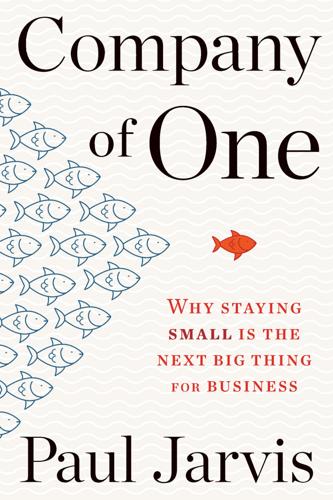
Company of One: Why Staying Small Is the Next Big Thing for Business
by
Paul Jarvis
Published 1 Jan 2019
Her problem-solving focus allows her to better evaluate new business ventures that are presented to her on the show. When you focus on solving problems or on making a difference, passion may follow, because you’re actually involved in the work you’re doing instead of just dreaming that you might be passionate about something. Cal Newport, the best-selling author of So Good They Can’t Ignore You, argues that passion is the side effect of mastery. To Newport, following your passion is fundamentally flawed as a career strategy because it fails to describe how most successful people ended up with compelling careers and can lead to chronic job-shifting and angst when your reality falls short of your passionate dream for your career.
…
Vallerand, “On the Psychology of Passion: In Search of What Makes People’s Lives Most Worth Living,” January 2007, https://www.researchgate.net/publication/228347175_On_the_Psychology_of_Passion_In_Search_of_What_Makes_People’s_Lives_Most_Worth_Living. 82 following your passion is fundamentally flawed: Cal Newport, So Good They Can’t Ignore You: Why Skills Trump Passion in the Quest for Work You Love (New York: Grand Central Publishing, 2012), xviii. engaging work helps you develop passion: William MacAskill, Doing Good Better: How Effective Altruism Can Help You Make a Difference (New York: Avery, 2015), 147–178. 86 not be just a job but an adventure: Jeffrey Jensen Arnett and Elizabeth Fishel, “Is 30 the New 20 for Young Adults?”
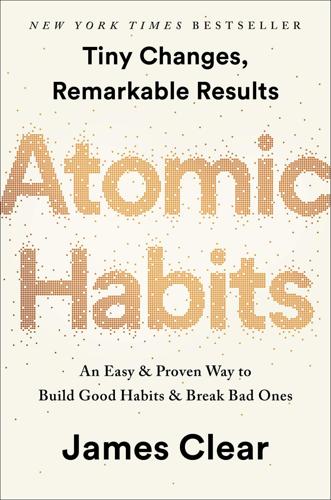
Atomic Habits: An Easy & Proven Way to Build Good Habits & Break Bad Ones
by
James Clear
Published 15 Oct 2018
the Two-Minute Rule: Hat tip to David Allen, whose version of the Two-Minute Rule states, “If it takes less than two minutes, then do it now.” For more, see David Allen, Getting Things Done (New York: Penguin, 2015). power-down habit: Author Cal Newport uses a shutdown ritual in which he does a last email inbox check, prepares his to-do list for the next day, and says “shutdown complete” to end work for the day. For more, see Cal Newport, Deep Work (Boston: Little, Brown, 2016). He always stopped journaling before it seemed like a hassle: Greg McKeown, Essentialism: The Disciplined Pursuit of Less (New York: Crown, 2014), 78. habit shaping: Gail B.
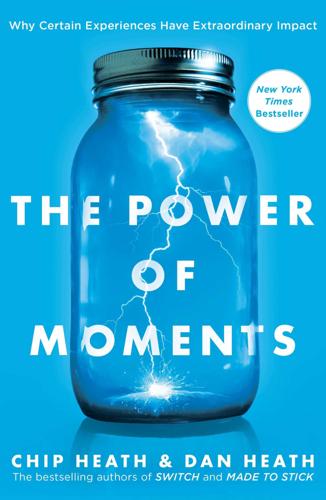
The Power of Moments: Why Certain Experiences Have Extraordinary Impact
by
Chip Heath
and
Dan Heath
Published 2 Oct 2017
Absurd but true.) We all love milestones. This brings us to one last point: The desire to hit milestones elicits a concerted final push of effort. To finish the marathon under 4 hours, you sprint the final quarter mile. To hit your 10,000 steps for the day, you obsessively pace the bedroom. Cal Newport, an author and computer science professor, spent years studying the habits of successful people. “From my experience, the most common trait you will consistently observe in accomplished people is an obsession with completion. Once a project falls into their horizon, they crave almost compulsively, to finish it.”
…
Scott Ettl reads presidential biographies. Scott Ettl story from interview with Dan in July 2016 Nine million runners in marathons. Eric J. Allen, Patricia M. Dechow, Devin G. Pope, and George Wu (2014, July). “Reference-Dependent Preferences: Evidence from Marathon Runners,” NBER Working Paper No. 20343. Cal Newport, “obsession with completion.” Cited in blog: https://www.scotthyoung.com/blog/2007/10/18/the-art-of-the-finish-how-to-go-from-busy-to-accomplished/. Chapter 9: Practice Courage Nashville sit-ins. This case study is based on an episode called “Ain’t Scared of Your Jails,” in the brilliant PBS series Eyes on the Prize: America’s Civil Rights Years (1995).
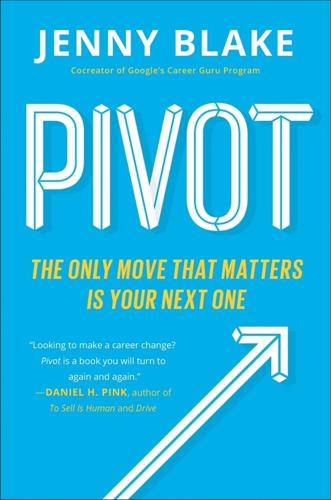
Pivot: The Only Move That Matters Is Your Next One
by
Jenny Blake
Published 14 Jul 2016
Subject matter expert (SME): Sharing ideas, solutions, and best practices on what you know about a specific area; forecasting or interpreting trends in your industry; disseminating knowledge and projections beyond the classroom. For example: in addition to teaching computer science at Georgetown University, Cal Newport shares “study hacks” for career success in his blog and books. Software as a service (SaaS): Create software or systems that improve efficiency or automate a specific market need. For example: online scheduling tools like Calendly and ScheduleOnce make booking meetings a snap; an accountability tracking service like AskMeEvery.com sends a question you have written, such as “Did you work out today?”
…
Pink Antifragile by Nassim Nicholas Taleb The Second Machine Age by Erik Brynjolfsson and Andrew McAfee The Antidote by Oliver Burkeman The Start-Up of You by Reid Hoffman and Ben Casnocha Plant The Power of Full Engagement by Jim Loehr and Tony Schwartz Finding Your Own North Star by Martha Beck The Big Leap by Gay Hendricks Body of Work by Pamela Slim Choose Yourself by James Altucher Scan So Good They Can’t Ignore You by Cal Newport The First 20 Hours by Josh Kaufman Tribes by Seth Godin Stand Out by Dorie Clark Essentialism by Greg McKeown Pilot The Lean Startup by Eric Ries Eat That Frog! by Brian Tracy Business Model You by Tim Clark, with Alexander Osterwalder and Yves Pigneur Making Ideas Happen by Scott Belsky The War of Art by Steven Pressfield Launch Smartcuts by Shane Snow The Dip by Seth Godin Outrageous Openness by Tosha Silver The Intuitive Way by Penney Peirce Playing Big by Tara Mohr Lead Conscious Business by Fred Kofman The Work Revolution by Julie Clow How Google Works by Eric Schmidt and Jonathan Rosenberg The Alliance by Reid Hoffman, Ben Casnocha, and Chris Yeh The Coaching Habit by Michael Bungay Stanier NOTES INTRODUCTION Pivot Is the New Normal People are no longer working: Tyler Cowen, “A Dearth of Investment in Young Workers,” New York Times, September 7, 2013, www.nytimes.com/2013/09/08/business/a-dearth-of-investment-in-young-workers.html.
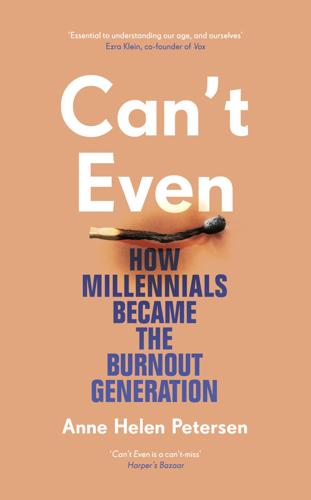
Can't Even: How Millennials Became the Burnout Generation
by
Anne Helen Petersen
Published 14 Jan 2021
That’s how social media robs of us of the moments that could counterbalance our burnout. It distances us from actual experiences as we obsess over documenting them. It turns us into needless multitaskers. As you’ll see in the next chapter, it erodes what used to be known as leisure time. And perhaps most damagingly, it destroys opportunities for solitude: what Cal Newport, drawing on the definition of Raymond Kethledge and Michael Erwin, describes as the “subjective state in which your mind is free from input from other minds.”4 In other words, hanging out with your own mind and all the emotions and ideas that experience promises and threatens to unearth. Ask yourself: When was the last time you were really bored?
…
Joanna Stern, “Cell Phone Users Check Phones 150x a Day and Other Fun Facts,” ABCNews, May 29, 2013; Jonah Engel Bromwich, “Generation X More Addicted to Social Media Than Millennials, Report Finds,” New York Times, January 27, 2017. 2. Rina Raphael, “Netflix CEO Reed Hastings: Sleep Is Our Competition,” Fast Company, November 6, 2017. 3. Paul Lewis, “Our Minds Can Be Highjacked,” Guardian, October 6, 2017. 4. Cal Newport, Digital Minimalism: Choosing a Focused Life in a Noisy World (New York: Portfolio/Penguin, 2019). 5. Katherine Miller, “President Trump and America’s National Nervous Breakdown,” BuzzFeed News, March 26, 2017. 6. Brad Stulberg, “Step Away from the 24-Hour News Cycle,” Outside, December 1, 2018. 7.
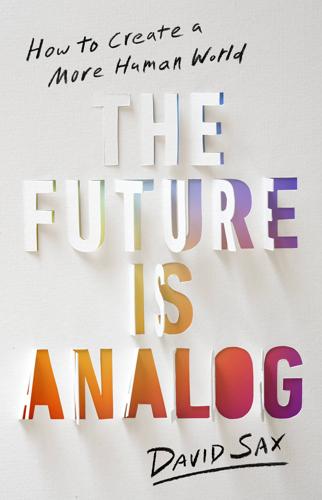
The Future Is Analog: How to Create a More Human World
by
David Sax
Published 15 Jan 2022
The digital future of work is thoroughly stuck in the past. Despite the tremendous advances in digital technology and their inventors’ promise to bring about a productivity revolution, it remains a mystery to economists why measures of productivity seem to have stalled over the past few decades. Cal Newport has argued over the past few years, with increasingly strident urgency in his best-selling books Deep Work, Digital Minimalism, and A World Without Email and in his articles, that digital technology has actually brought us the opposite: a decline in productivity. Rather than liberating us from unproductive tasks, as promised, digital tools like email, instant messaging, video meetings, and so on have inundated us with pointless time-sucking distractions.
…
Not better, just more. The future should challenge that, so we can get closer to the promise of liberation from work’s drudgery that digital aimed for but ultimately failed to deliver. A future where we can work smarter, doing more productive, meaningful work, in the time that work actually requires. Cal Newport frequently promotes ideas like “slow productivity,” where managers can only assign workers new tasks if the previous ones have been completed, which is the opposite of the modern digital multitasking that inevitably leads to burnout. We need to have an honest, difficult conversation about the boundaries between work and life and how the nineteenth-century framework of a five-day, forty-hour workweek is anathema in a world where knowledge work requires a more fluid and flexible concept of time.
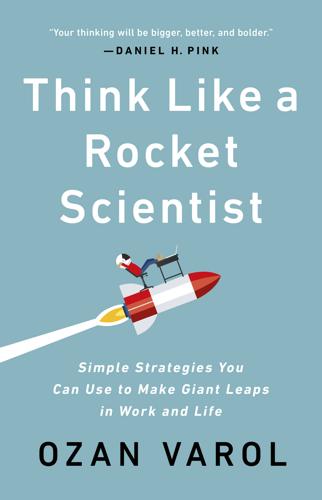
Think Like a Rocket Scientist: Simple Strategies You Can Use to Make Giant Leaps in Work and Life
by
Ozan Varol
Published 13 Apr 2020
Damon Young, “Charles Darwin’s Daily Walks,” Psychology Today, January 12, 2015, www.psychologytoday.com/us/blog/how-think-about-exercise/201501/charles-darwins-daily-walks. 46. Pang, Rest, 100. 47. Melissa A. Schilling, Quirky: The Remarkable Story of the Traits, Foibles, and Genius of Breakthrough Innovators Who Changed the World (New York: PublicAffairs, 2018). 48. Cal Newport, “Neil Gaiman’s Advice to Writers: Get Bored,” Cal Newport website, November 11, 2016, www.calnewport.com/blog/2016/11/11/neil-gaimans-advice-to-writers-get-bored. 49. Stephen King, On Writing: A Memoir of the Craft (New York: Scribner, 2000). 50. Mo Gawdat, Solve for Happy: Engineering Your Path to Joy (New York: North Star Way, 2017), 118. 51.
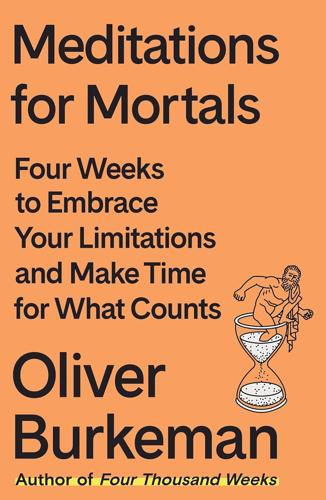
Meditations for Mortals: Four Weeks to Embrace Your Limitations and Make Time for What Counts
by
Oliver Burkeman
Published 8 Oct 2024
That said, titles on the topic that have genuinely helped trigger action in my own life include Steve Chandler’s Time Warrior and Gregg Krech’s The Art of Taking Action: Lessons from Japanese Psychology. Many of the principles of finitude-embracing productivity are encapsulated in the time management system known as Kanban, which is lucidly outlined in Personal Kanban: Mapping Work/Navigating Life by Jim Benson and Tonianne DeMaria; there are also overlaps with Cal Newport’s advice on dividing your projects into ‘active’ and ‘waiting to be active,’ which is one of the gems in his book Slow Productivity: The Lost Art of Accomplishment Without Burnout. Zen and time management come together in Paul Loomans’s Time Surfing: The Zen Approach to Keeping Time on Your Side, which contains a remarkable amount of wisdom for such a short book; and anyone paralyzed with anxiety about a daunting project should read Virginia Valian’s essay ‘Learning to Work,’ which she makes available on her website, virginiavalian.org.
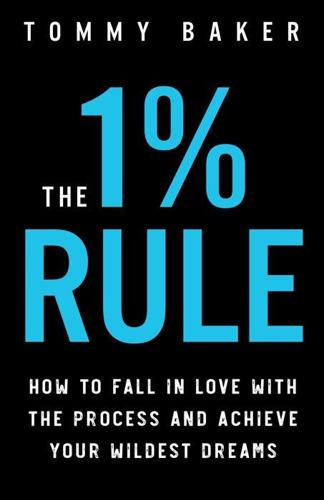
The 1% Rule: How to Fall in Love With the Process and Achieve Your Wildest Dreams
by
Tommy Baker
Published 18 Feb 2018
I caught myself wanting to be social, and I made excuses to text, e-mail, or do anything but write. Needless to say, that version of the book never got to 1,000 words. I conveniently put it on the backburner, and never opened the document again. At the end of the year, I was exposed to a powerful text that shifted the way I view work, life, and business. This book was Deep Work by Cal Newport (Newport 2016), an accomplished professor, writer, and researcher who seems to accomplish more than anyone in his field. He used examples of those who took deep work to the extreme and extracted themselves from society, including Carl Jung, Benjamin Franklin, and others. I was floored by the distinctions in the book and realized how much I’d been letting the monkey mind control my life.
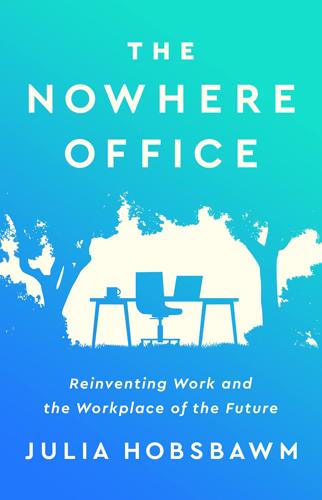
The Nowhere Office: Reinventing Work and the Workplace of the Future
by
Julia Hobsbawm
Published 11 Apr 2022
However we do it, in the hybrid world we will need to manage our own time – those stubborn, un-stretchable 168 hours in the week which we humans need a third of to sleep through and another third to do things like get ourselves or a child dressed, put on a kettle, clean a bathroom or pay our bills. Time is going to be judged and measured differently now, less so in seconds and minutes and hours but by tasks which we match to our environment. Quiet time to do Cal Newport’s famous Deep Work concentration. Or time to collaborate, brainstorm, exchange information in a loose way someone described to me as ‘random collision’. Or time for our private lives with the implicit agreement of managers and leaders about what success looks like professionally – leaving us to decide how to allocate the time we need to achieve this.
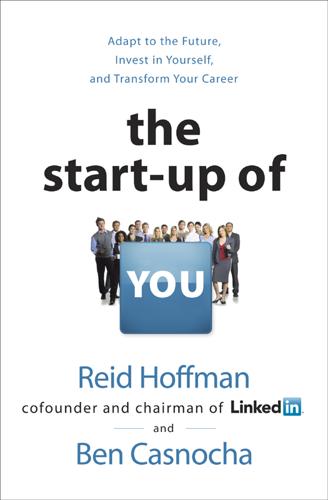
The Start-Up of You: Adapt to the Future, Invest in Yourself, and Transform Your Career
by
Reid Hoffman
and
Ben Casnocha
Published 14 Feb 2012
In particular, I’d like to call out three of my teachers whose early gifts of time and insight changed my life: Lisa Cox and Tom Wessells from the Putney School, who set me on my initial path of being a public intellectual, and Jonathan Reider at Stanford University, who amplified that path. —RGH I’m grateful to the many people who supported me in this project. A special tip of the hat to Jessie Young, Stephen Dodson, Chris Yeh, and Cal Newport for going beyond the call of duty. And heartfelt thanks to my parents for everything they do. —BTC Notes Chapter 1 1. “Centuries of immigrants” and “risked everything” were inspired by Barack Obama’s 2011 State of the Union address. “Obama’s Second State of the Union (Text),” New York Times, January 25, 2011, http://www.nytimes.com/2011/01/26/us/politics/26obama-text.html?
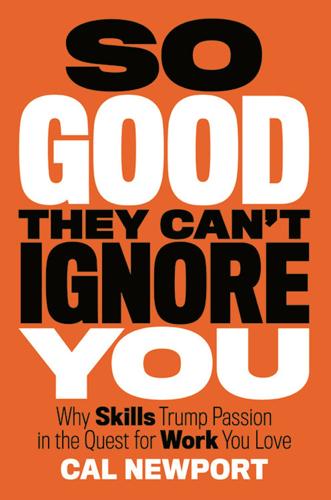
So Good They Can't Ignore You: Why Skills Trump Passion in the Quest for Work You Love
by
Cal Newport
Published 17 Sep 2012
She not only read drafts of my work in progress but also listened through endless iterations of my thinking, always offering honest and clear feedback. She was joined in these efforts by my friend Ben Casnocha, who conceived, sold, and wrote a career-advice book concurrently with my own, allowing us to share numerous useful conversations at all stages of the process. About the Author CAL NEWPORT is an Assistant Professor of Computer Science at Georgetown University. He previously earned his PhD from MIT and his bachelor’s from Dartmouth College. Newport is the author of three books of unconventional advice for students: How to Be a High School Superstar, How to Become a Straight-A Student, and How to Win at College.
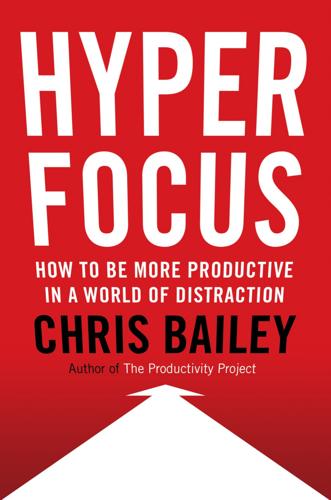
Hyperfocus: How to Be More Productive in a World of Distraction
by
Chris Bailey
Published 31 Jul 2018
Over the course of the day, we alternate between doing two types of work: focus work and collaborative work. Focus work benefits from all the attention we can bring to it—the less we’re distracted, the more deeply we’re able to focus, and the more productive we become. This allows us, as author Cal Newport has put it, to do “deep work.” The breakdown of how much focus and collaborative work you do varies depending on your job. If you’re an administrative assistant, your work may involve 90 percent collaboration and 10 percent focus work. If you’re a writer, your work may require 90 percent focus work and 10 percent collaboration.
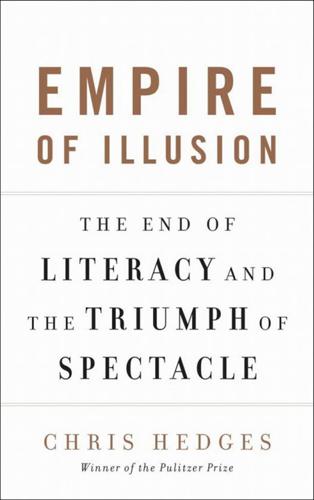
Empire of Illusion: The End of Literacy and the Triumph of Spectacle
by
Chris Hedges
Published 12 Jul 2009
Above all, what is encouraged is the growth of an undisciplined form of self-interest, in which winning is what counts.15 One winter night I was returning books to Firestone Library at Princeton University. I glanced at the book the student behind the main desk was reading. It was How to Win at College by Cal Newport. The flap cover promised that it was “the only guide to getting ahead once you’ve gotten in—proven strategies for making the most of your college years, based on winning secrets from the country’s most successful students.” “What does it take to be a standout student?” the flap read. How can you make the most of your college years—graduate with honors, choose exciting activities, build a head-turning résumé, and gain access to the best post-college opportunities?
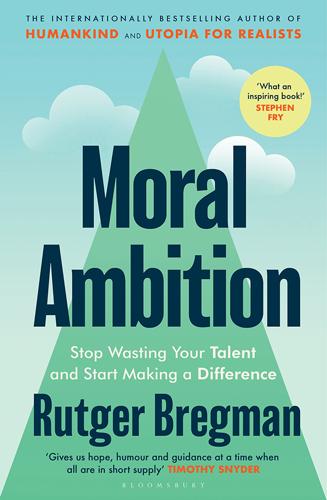
Moral Ambition: Stop Wasting Your Talent and Start Making a Difference
by
Bregman, Rutger
Published 9 Mar 2025
Moral Ambition is the rare read that might actually help you become a better person’ Adam Grant, bestselling author of Think Again ‘Rutger Bregman challenges the reader to use their lives to improve the world. A bracing but ultimately uplifting wake-up call for a culture increasingly drowning in distraction and consumption!’ Cal Newport, bestselling author of Slow Productivity and Deep Work ‘Rutger Bregman’s latest work isn’t merely a book; it’s a call to action for humanity to re-evaluate our paradigms of success and impact in the world. It serves as a stark wake-up call, urging us to truly utilise our talents to create the future we all wish to live in’ Trevor Noah ‘“Find something worth doing” seems like sage advice for us all – and on this beleaguered planet, as this book makes clear, that means digging into the very biggest problems’ Bill McKibben, author of The End of Nature ‘The key to solving our biggest problems isn’t just awareness, political will, or money – it’s ambitious individuals willing to dedicate their time and skills to improving the world.
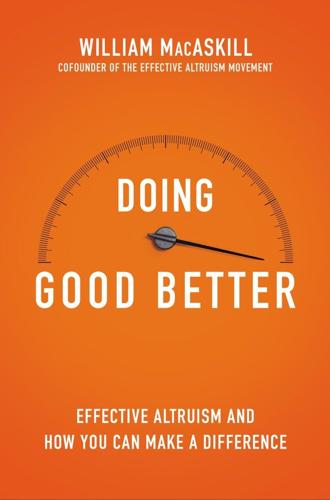
Doing Good Better: How Effective Altruism Can Help You Make a Difference
by
William MacAskill
Published 27 Jul 2015
Cooper, eds., Well-being: Productivity and Happiness at Work (New York: Palgrave Macmillan, 2011) and Andrew J. Oswald, Eugenio Proto, and Daniel Sgroi, “Happiness and Productivity,” IZA discussion papers, no. 4,645 (2009), http://www.econstor.eu/handle/10419/35451. “You have to trust in something”: “‘You’ve got to find what you love,’ Jobs says,” Stanford Report, June 14, 2005. For criticism, see Cal Newport, So Good They Can’t Ignore You: Why Skills Trump Passion in the Quest for Work You Love (New York: Business Plus, 2012), 3–11. “You owe it to yourself to do work that you love”: Jenny Ungless and Rowan Davies, Career Ahead: The Complete Career Handbook (London: Raleo, 2008). A popular YouTube video: “What If Money Was No Object?”
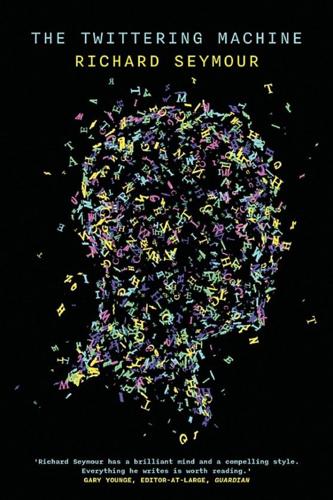
The Twittering Machine
by
Richard Seymour
Published 20 Aug 2019
The destruction of an ill-founded cyber-utopianism, insufficiently attentive to the political economy of platform capitalism and its pathologies, has given rise to a counter-utopian backlash. It manifests in the proliferation of articles with headlines like, ‘I quit social media and it changed my life’. TED talks such as Cal Newport’s ‘Why you should quit social media’. Books like Jaron Lanier’s Ten Arguments For Deleting Your Social Media Accounts Right Now. Alongside these are the innumerable head-shaking think pieces about how to combat ‘fake news’ and stop Russian trolls from destroying democracy. Increasingly, the rich absent themselves, professionalizing and delegating their social media accounts.
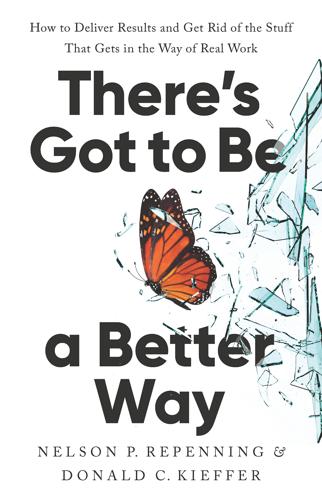
There's Got to Be a Better Way
by
Nelson P. Repenning
and
Donald C. Kieffer
Published 26 Aug 2025
—Adam Grant, New York Times bestselling author of Think Again “Repenning and Kieffer are absolutely right: there’s got to be a better way to work than what we’re doing now! Fortunately, their theory of dynamic work design offers exactly the type of compelling alternative we’ve been so desperately searching for.” —Cal Newport, New York Times bestselling author of Deep Work “The most useful book on creating enduring organizational change I have ever read. This masterpiece shows why, when leaders try to change organizations for the better, they so often make things worse by focusing on fighting fires rather than fixing root causes.
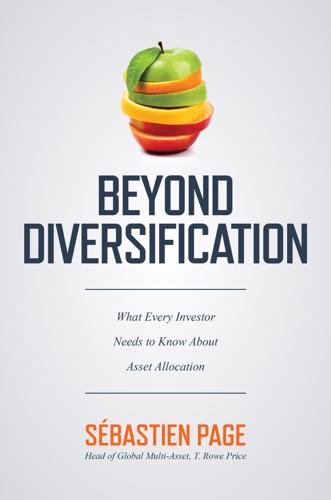
Beyond Diversification: What Every Investor Needs to Know About Asset Allocation
by
Sebastien Page
Published 4 Nov 2020
I can’t imagine stronger role models for integrity, humility, investment savvy, and leadership. Our industry suffers from a dearth of skilled investors who can lead people. Rob and Bill are the real deal along both dimensions. On time management, this book took me more than two years to write, little by little, with moments of self-doubt. I started writing after I read Cal Newport’s book Deep Work—one of the most impactful books I’ve ever read. It helped me organize my time. I’ve never met Cal, but I feel I need to thank him for changing how I think about time management. Mary Rolfe and Dan Middelton deserve a lot of credit as well for their help managing my schedule. Last, about support from family, in addition to a passion for finance, I learned the importance of a strong work ethic from my father, Jean-Paul Page.
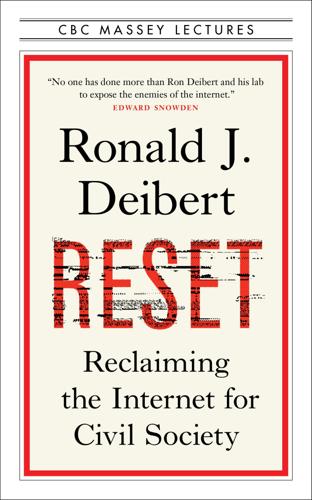
Reset
by
Ronald J. Deibert
Published 14 Aug 2020
At the luxurious Grand Velas Riviera Nayarit in Mexico, guests who opt in to the digital detox program are met by a concierge who “cleanses” their suite “by removing the flat screen television from the room, replacing it with classic board games and then whisking away their personal electronic devices … to a safe.”393 A growing number of self-help books advocate for some variation of digital retreat. Cal Newport’s book Digital Minimalism suggests users follow his guidelines for a thirty-day “digital declutter” process, followed by a conservative approach to the use of social media that includes regular, lengthy periods of solitude.394 Recognizing the growing demand arising out of the retreat movement, social media platforms have even begun to build in tools and techniques to assist in the digital cleanse.
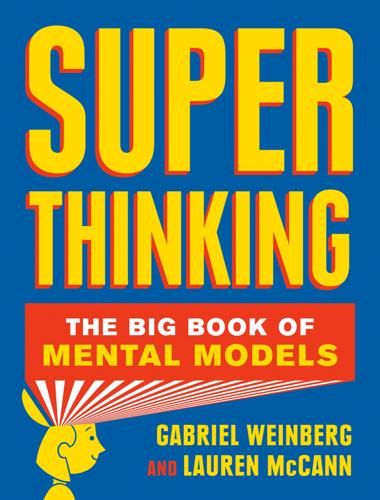
Super Thinking: The Big Book of Mental Models
by
Gabriel Weinberg
and
Lauren McCann
Published 17 Jun 2019
And this idea will thus tend to get all the benefit of that type of thinking, while others are starved of it. Which means it’s a disaster to let the wrong idea become the top one in your mind. If you are constantly switching between activities, you don’t end up doing much creative thinking at all. Author Cal Newport refers to the type of thinking that leads to breakthrough solutions as deep work. He advocates for dedicating long, uninterrupted periods of time to making progress on your most important problem. In a November 6, 2014, lecture titled “How to Operate,” entrepreneur and investor Keith Rabois tells a story about how Peter Thiel used this concept when he was CEO of PayPal: [Peter] used to insist at PayPal that every single person could only do exactly one thing.
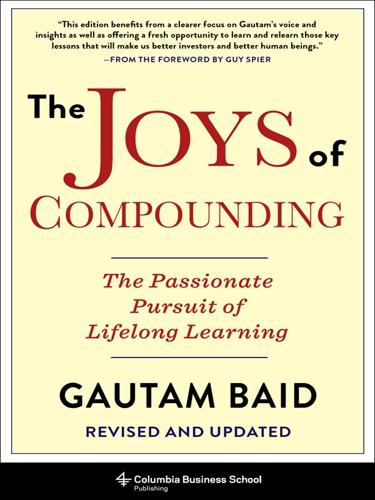
The Joys of Compounding: The Passionate Pursuit of Lifelong Learning, Revised and Updated
by
Gautam Baid
Published 1 Jun 2020
Market’s follies, and emphasizing the margin of safety at all times. Benjamin Franklin taught me the virtues of good personhood and focusing on daily rituals with complete integrity. Napoleon Hill, David Schwartz, and Ian Cassel taught me that the right mind-set is the starting point for all riches. Geoff Colvin, Daniel Coyle, Cal Newport, and Anders Ericsson educated me on the science behind skill development. Charles Duhigg and James Clear educated me on the science behind positive habit formation. Robert Maurer and Darren Hardy enlightened me on the incredible power of compounding small, consistent, positive actions over a long period of time.
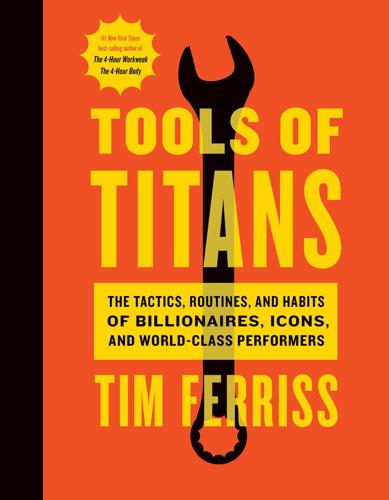
Tools of Titans: The Tactics, Routines, and Habits of Billionaires, Icons, and World-Class Performers
by
Timothy Ferriss
Published 6 Dec 2016
Feynman), Recession Proof Graduate (Charlie Hoehn), Ogilvy on Advertising (David Ogilvy), The Martian (Andy Weir) Kamkar, Samy: Influence (Robert Cialdini) Kaskade: Lights Out: A Cyberattack, A Nation Unprepared, Surviving the Aftermath (Ted Koppel) Kass, Sam: Sapiens (Yuval Noah Harari), The Art of Fielding (Chad Harbach), Plenty; Jerusalem; Plenty More (Yotam Ottolenghi), The Flavor Bible: The Essential Guide to Culinary Creativity, Based on the Wisdom of America’s Most Imaginative Chefs (Karen Page and Andrew Dornenburg), A History of World Agriculture (Marcel Mazoyer and Laurence Roudart) Kelly, Kevin: The Adventures of Johnny Bunko (Daniel Pink), So Good They Can’t Ignore You (Cal Newport), Shantaram (Gregory David Roberts), Future Shock (Alvin Toffler), Regional Advantage: Culture and Competition in Silicon Valley and Route 128 (AnnaLee Saxenian), What the Dormouse Said: How the Sixties Counterculture Shaped the Personal Computer Industry (John Markoff), The Qur’an, The Bible, The Essential Rumi; The Sound of the One Hand: 281 Zen Koans with Answers (Yoel Hoffman), It’s All Too Much: An Easy Plan for Living a Richer Life with Less Stuff (Peter Walsh) Koppelman, Brian: What Makes Sammy Run?